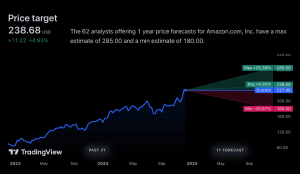I am 42, married with no kids, and currently working. I am living with my in-laws’ house, and not paying any rent which is ok with my in-laws. I have $114,000 in a 401(k) and $1,400 in credit-card debt. I also have $1,300 in a robo-adviser brokerage account. How can I grow my wealth? I am not that familiar with investing, but currently educating myself about it.
Dear Willing,
The day before tomorrow is the best time to start planning.
Living rent-free is a boon, but have a plan. If your spouse is an only child, their parents may intend to leave their home to your spouse on a “step-up in basis,” meaning your spouse pays tax on the fair market value at the time of their last parent’s death, rather than on the original purchase price. If not, plan to (hopefully) live independently in your own place.
U.S. adults, on average, say they’ll need $1.46 million to retire comfortably, up 15% over the $1.27 million reported last year, according to a recent study by Northwestern Mutual. That increase far outpaces the 2.6% inflation rate. People’s “magic number” for retirement savings has risen 53% from the $951,000 target Americans reported in 2020.
It’s quite possible you could reach that by the time you retire if you continue to contribute to your 401(k) and have an employer match. But the median retirement savings for a person between 65 and 74 is closer to $600,000, based on Federal Reserve data, so don’t panic. (Telling someone, “Don’t panic,” can often cause them to panic, so I apologize in advance.)
I’m telling you all this to provide some context — not to intimidate you. These are just goals. Give yourself some space to clear your credit-card debt and avoid paying a 20%-plus interest rate on that money because you are losing money by carrying a credit-card balance month to month. Then, focus on investing and saving, making sure you have an emergency fund.
So what do you have in your favor? You’re aware of the fact that you do need to save for retirement and you already have six figures in a 401(k), which is not too far off the median retirement savings for someone in your age group (around $140,000). You’re married and sharing expenses and, thus far, you only have two mouths to feed.
You are on the road to retirement — and that fact alone means you are one of the more fortunate ones. One in four adults over 50 say they never expect to retire, according to AARP. That’s based on interviews with more than 8,000 people in coordination with the NORC Center for Public Affairs Research at the University of Chicago.
Resist investing in individual stocks. If and when you have more investable cash, as you enter the peak years of your career, for long-term growth you could look into “value-oriented and defensive sectors” and the technology sector. Remember: There is always lots of uncertainty and no guarantees. Investing in the stock market is a long-term game.
Alternative investing vehicles
Health Savings Accounts (HSA) are tax-advantaged accounts that allow you to withdraw funds tax-free for qualified medical expenses. You can also use that cash to reduce your out-of-pocket medical expenses. They are one way to build a “medical nest egg.” For 2024, individuals under a high-deductible health plan (HDHP) have an HSA annual contribution limit of $4,150.
HSAs can be a powerful savings vehicle for retirement due to their triple tax advantage, says Fidelity: “Contributions are made on a pre-tax basis or you can take a deduction for contributions made yourself, investments in the account have tax-free growth potential, and withdrawals are tax-free when used for qualified medical expenses now or in retirement.”
The Fed has started to reduce interest rates in recent months: Certificates of deposit will give you a fixed interest rate, while the rate may change for high-yield savings accounts in line with the Fed’s benchmark rate. Some CDs have no minimum deposit restrictions or have minimums of a couple of thousand dollars, while others have $25,000 minimum deposits.
The earlier you start saving, the better. Fidelity uses the example of “Sarita,” 25, who invests $7,000 a year in the stock market for 10 years. She ends up with a hypothetical $902,000 at 67. “Chris,” who starts saving the same amount at age 35 and continues to invest it for 32 years, has less than Sarita ($825,500 at the age of 67).
“Take advantage of time and the potential of compounding growth,” Fidelity says. (Your principal makes money and so does the interest earned on that.) “When it comes to long-term saving, time is a powerful force and it’s on your side. The earlier you begin saving and investing, the lower your savings rate can be throughout your career thanks to the power of compounding.”
Fidelity says you need to balance growth with your risk tolerance: “Over the long term, stocks have historically had higher returns than bonds or cash. Investors with many years before retirement have time to ride out the ups and downs in the market, and the potential compounding and growth stocks can provide may help you reach your retirement goals.”
Kudos to you for having a robo-adviser. They’re cost-effective ways to navigate the stock market; like the humans who created them, they’re not perfect, but they’re a good starting point to learn the basics of investing. Some robo-advisers also offer humans more personalized advice. You can read more about the pros and cons of robo-advisers here.
Keep your eye on your goals, and be careful of that credit-card debt.
You can email The Moneyist with any financial and ethical questions at qfottrell@marketwatch.com, and follow Quentin Fottrell on X, the platform formerly known as Twitter.
The Moneyist regrets he cannot reply to questions individually.
More columns from Quentin Fottrell:
My husband and I have lived in my house for 17 years. Should I finally add him to the deed?
Check out The Moneyist’s private Facebook group, where members help answer life’s thorniest money issues. Post your questions, or weigh in on the latest Moneyist columns.
By emailing your questions to The Moneyist or posting your dilemmas on The Moneyist Facebook group, you agree to have them published anonymously on MarketWatch.
By submitting your story to Dow Jones & Co., the publisher of MarketWatch, you understand and agree that we may use your story, or versions of it, in all media and platforms, including via third parties.
This post was originally published on Market Watch






